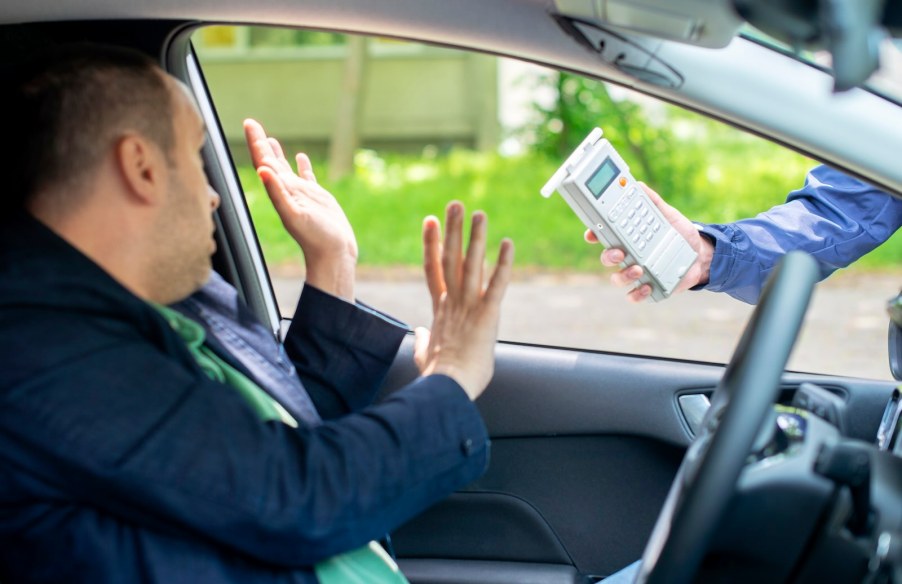
You could lose your license without failing a breathalyzer test, thanks to the ‘implied consent’ law
Imagine this scenario: You are driving home when a police officer comes out of nowhere and pulls you over. You’re coming from the bar and concerned about failing a breathalyzer test, so you refuse to take one. But next thing you know you are losing your license anwyay. This is why “implied consent” may be one of the most important aspects of your state’s DUI laws to understand.
But first, a quick definition. The most common test to determine blood alcohol content is a breathalyzer test, just because it is most convenient. An even more accurate test is a blood test while a less accurate option is a urine test. All of these are categorized as “chemical tests” and you can’t legally be “compelled” to take one. But the punishment for refusing can be steep, and are dictated by “implied consent” laws.
Here is the concept: in almost every state, your choice to drive on a public road implies that you consent to some kind of chemical sobriety test if an officer arrests you under suspicion of drunk driving. The Justia website explains the ramifications: “Since a driver who refuses to complete a chemical test violates the implied consent arrangement, almost every state imposes a mandatory driver’s license suspension on the driver.”

How long will you be unable to drive? An implied consent license suspension could last anywhere from six months to a year. Some states are even more severe. New York, for example, may also hit you with a fine.
That’s not all, if an investigation later finds you were indeed guilty of a DUI you may be in more trouble than if you’d taken the test. Your original refusal to take the test may lead to a heightened punishment.
And wait, there’s more. Many drivers may feel their best option is to insist police officers obtain a warrant from a judge before they agree to a breathalyzer test. They may think, The judge will be hard to get ahold of, and I’ll have time to sober up. So some states have enacted what they call a “no refusal” policy. Essentially, they have a judge on call who can send a warrant to the police officer’s phone or in-car computer. Once the officer has a warrant, continuing to refuse a chemical test is considered obstructing justice or even contempt. And that comes with even bigger consequences.
All-in-all, you’ll probably struggle to dodge the breathalyzer test if stopped for suspected drunk driving. And even if you do, you may face hefty penalties. Yet another reason your best bet is to only drive sober.



